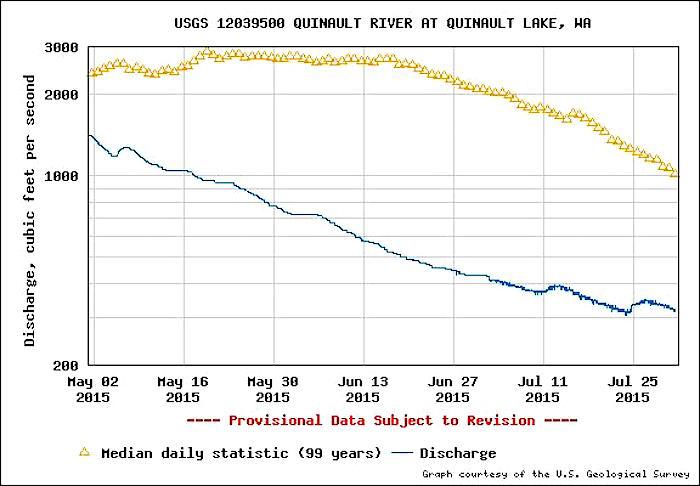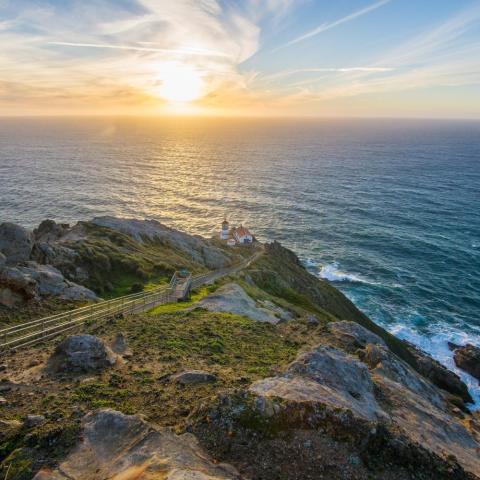
Flows in the Quinault River in Olympic National Park are way below average/USGS
While California's struggles with drought are national news, other states are having troubles, too. At Olympic National Park in Washington, the drought has led to officials announcing an emergency closure of recreational fishing on most rivers and streams within the park beginning today.
Current conditions have made Pacific salmon, steelhead, and bulltrout exceptionally vulnerable because of low stream flows and high water temperatures.
The following river systems within Olympic National Park will close to all recreational fishing on August 10:
Bogachiel, South Fork Calawah, Sol Duc, North Fork Sol Duc, Dickey, Queets, Salmon, Quinault, and North Fork Skokomish Rivers (including East and North Forks) and their tributaries and Cedar, Goodman, Kalaloch, and Mosquito Creeks in the Pacific Coastal area. The Elwha, Hoh and South Fork Hoh Rivers are already closed within the park to protect salmon populations.
This year's severe drought conditions have reduced river flows to historic low levels. Low river and stream levels not only reduce the amount of water and space available for fish, but also lead to elevated water temperatures that can weaken or even kill Pacific salmon. Pacific salmon and trout show signs of physiological stress at water temperatures above 60 degrees Fahrenheit, with lethal effects beginning at 70 degrees. Daily high temperatures in excess of 60 degrees have already been observed in many Olympic Peninsula rivers and have occasionally reached 70 degrees in the lower Sol Duc and Dungeness rivers.
Low water and high water temperatures can slow or even stop upstream salmon migrations. The broad application of this closure is necessary to address angling pressure during these extreme drought conditions to better protect Pacific salmon, steelhead trout, and federally threatened bull trout in the park's rivers and creeks, a park release said.
The mouth and coastal section of the Quillayute River within Olympic National Park remains open for recreational fishing, as do Lake Crescent, Lake Ozette and the park's many high country lakes.




 Support Essential Coverage of Essential Places
Support Essential Coverage of Essential Places







Add comment